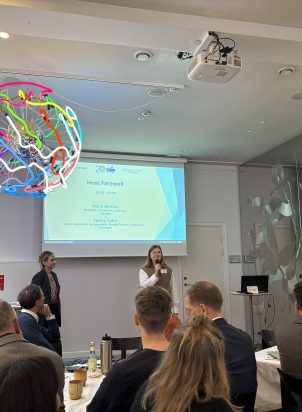What can ESPON say about Sweden and Swedish regional policy priorities?
Understanding one’s comparative strengths and weaknesses is important, especially for countries like Sweden. It is small in terms of population and has an open economy, dependent on trade and knowledge exchange with other countries around the world. One way for Sweden to increase its understanding of strengths and weaknesses was to look at comparable European information on Swedish challenges and priorities.
To take a step in this direction, Sweco and Nordregio got appointed by the Swedish Agency for Growth Policy Analysis to bring together recent ESPON research results and put them in a Swedish perspective in a synthesis report. By using ESPON as a starting point we could see Sweden and its regions in a European perspective and use this knowledge as a contrast to the Swedish inside perspective.
Understanding Sweden in a European context
Seen from a European perspective, there are a number of challenges and opportunities for future developments for Sweden and its cities and regions. These comparative challenges and opportunities can be summarised thematically as:
- Globalisation: Sweden is one of the most globalised countries in Europe, with a highly export-dependent economy. Nevertheless, in a European perspective, Swedish cities and regions show low vulnerability to globalisation trends and the ability to quickly adapt to global change. One challenge, however, is to international trade with partners outside the Nordic countries and the EU28.
- Internationalisation (private sector): While Stockholm’s business community is very well integrated in international business networks, the profile of Sweden’s secondary cities and small towns is less pronounced as compared to many other countries. An issue for future development is to support the business sector in secondary cities to enhance their integration in various international business networks and strengthen their roles in international trade.
- Accessibility: In a European and international perspective Swedish cities and regions are characterised by low accessibility (including Stockholm). Only the region of Skåne is a little better off, mainly because of Copenhagen airport. Meanwhile, the economic development of the Swedish regions is better than what their relatively low availability would suggest. It is important to remain at the forefront of strategic economic and technological developments to compensate for the country’s modest international availability. Otherwise, there is a risk that the relatively low availability may hamper development in Sweden.
- ICT: Despite being sparsely populated in large parts of the country, Sweden has an overall good broadband coverage. This provides the basis for its high level of computer and Internet use, with strong e-commerce and high employment in the IT-sector – as compared to other parts of Europe. Sweden is likely to have the potential to further improve its position in a European perspective and to reduce the still large differences between urban and rural areas in terms of IT use.
- Knowledge and innovation: Generally, Sweden has high levels of R&D investments, which puts the country at the forefront of a knowledge-based economic development. In a European perspective, Swedish regions are described as “applied research regions” and “smart technology application areas”. Innovation processes are complex and require long-term investments. A challenge for Sweden is to maintain its prominent position in a European perspective in the future.
- Entrepreneurship oriented regional development: The restructuring of the natural resource-based economy of Sweden’s peripheral regions allows for the development of new regional growth engines. One challenge is to strengthen regional endogenous forces and conditions to promote local development with a focus on entrepreneurship.
- Environmentally driven business development and energy: Sweden’s extensive natural resources, as well as many other advantageous conditions, provide an international competitive advantage for Sweden in the field of green growth. The challenge is to stimulate the demand that helps new businesses to develop and grow in competition with established businesses – especially in sparsely populated and peripheral regions.
- Tourism: Measured in terms of intra-European and international visitors, Swedish regions are only moderately attractive. At the same Swedish regions are placed in top-ranks when it comes to the numbers of domestic tourists per inhabitant. This suggests that there is further potential for the development of the tourism industry, particularly with focus on international tourists.
- Services of general interest: Although Sweden as a country is characterised by a high ambitions when it comes to the provision of services of general interest (particularly social services), the availability of such services is only moderately high in a European perspective. This is especially true for rural areas. There is potential for improvement, particularly given the rapidly increasing range of e-services.
- Attractiveness and occupancy: When it comes to immigration from other European countries, Sweden is less attractive than many other European countries. As in some other countries, national migration from rural to urban areas contribute to growing imbalances and consequent development challenges for both rural areas and cities.
Internationalisation (public sector): Swedish regions and cities exhibit a strong commitment to international cooperation in the public sector, e.g. through various INTERREG projects. At the same time, permanent cooperation in the form of EGTCs (European Groupings of Territorial Cooperation) is weakly developed in Sweden – if at all.
These are some examples of how ESPON results can be used to enrich the national or regional discussions with an outside perspective. With this report, Nordregio, Sweco and the Swedish Agency for Growth Policy Analysis hope to stimulate a dialogue between national and regional actors around the benefits of ESPON. The report can also be used as a basis for identifying knowledge and possible knowledge gaps in relation to the national strategy for regional growth and attractiveness.
For more information send an email at the Swedish Agency for Growth Policy Analysis: wolfgang.pichler@tillvaxtanalys.se








